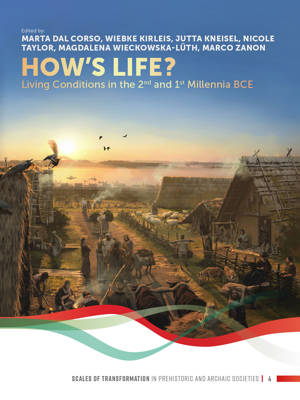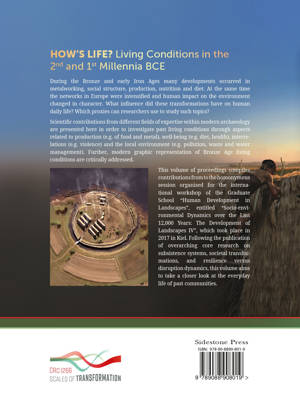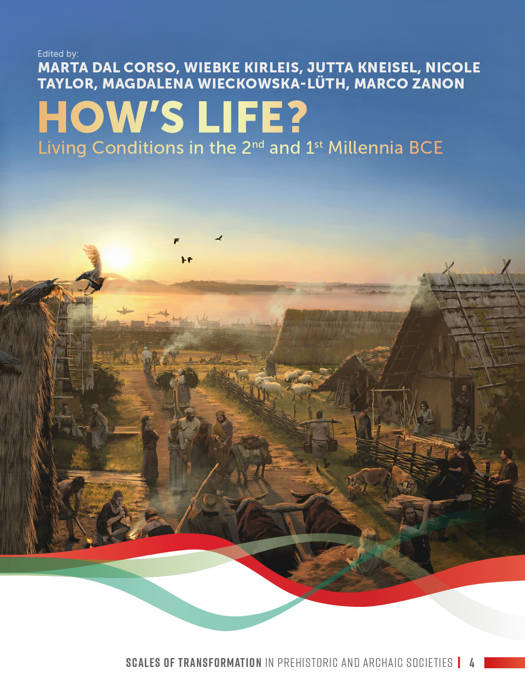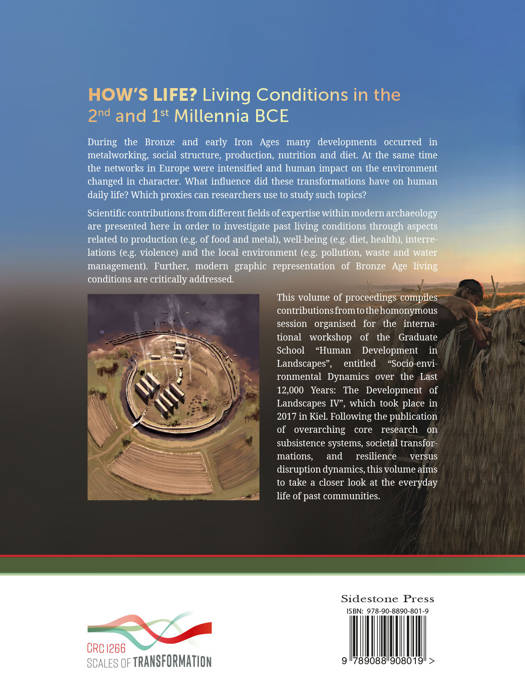
- Afhalen na 1 uur in een winkel met voorraad
- Gratis thuislevering in België vanaf € 30
- Ruim aanbod met 7 miljoen producten
- Afhalen na 1 uur in een winkel met voorraad
- Gratis thuislevering in België vanaf € 30
- Ruim aanbod met 7 miljoen producten
Zoeken


How's Life?
Living Conditions in the 2nd and 1st Millennia Bce
€ 120,00
+ 240 punten
Omschrijving
The Bronze Age and Early Iron Age saw many developments in metalworking, social structure, food production, nutrition, and diet. At the same time, networks in Europe intensified and human impact on the environment changed in character. What influence did these transformations have on daily life? Which proxies can researchers use to study these topics?
This volume presents scientific contributions from different fields of expertise within modern archaeology in order to investigate past living conditions through aspects of the archaeological record related to production (e.g. of food and metal), well-being (e.g. diet, health), human relations (e.g. violence), and the local environment (e.g. pollution, waste disposal, and water management). It also critically addresses contemporary graphic representations of Bronze Age living conditions.
This volume compiles papers from a session with the same title organized for an international open workshop of the Graduate School 'Human Development in Landscapes', entitled 'Socio-Environmental Dynamics over the Last 12,000 Years: The Development of Landscapes IV', which took place in 2017, in Kiel, Germany. Publications detailing overarching core research on subsistence systems, societal transformations, and resilience versus rupture dynamics already exist. With this volume, we aim to provide a closer look at everyday life in past communities.
This volume presents scientific contributions from different fields of expertise within modern archaeology in order to investigate past living conditions through aspects of the archaeological record related to production (e.g. of food and metal), well-being (e.g. diet, health), human relations (e.g. violence), and the local environment (e.g. pollution, waste disposal, and water management). It also critically addresses contemporary graphic representations of Bronze Age living conditions.
This volume compiles papers from a session with the same title organized for an international open workshop of the Graduate School 'Human Development in Landscapes', entitled 'Socio-Environmental Dynamics over the Last 12,000 Years: The Development of Landscapes IV', which took place in 2017, in Kiel, Germany. Publications detailing overarching core research on subsistence systems, societal transformations, and resilience versus rupture dynamics already exist. With this volume, we aim to provide a closer look at everyday life in past communities.
Specificaties
Betrokkenen
- Uitgeverij:
Inhoud
- Aantal bladzijden:
- 210
- Taal:
- Engels
- Reeks:
- Reeksnummer:
- nr. 4
- Geïllustreerd:
- Ja
Eigenschappen
- Productcode (EAN):
- 9789088908026
- Verschijningsdatum:
- 9/10/2019
- Uitvoering:
- Hardcover
- Formaat:
- Genaaid
- Afmetingen:
- 211 mm x 282 mm
- Gewicht:
- 938 g

Alleen bij Standaard Boekhandel
+ 240 punten op je klantenkaart van Standaard Boekhandel
Beoordelingen
We publiceren alleen reviews die voldoen aan de voorwaarden voor reviews. Bekijk onze voorwaarden voor reviews.











